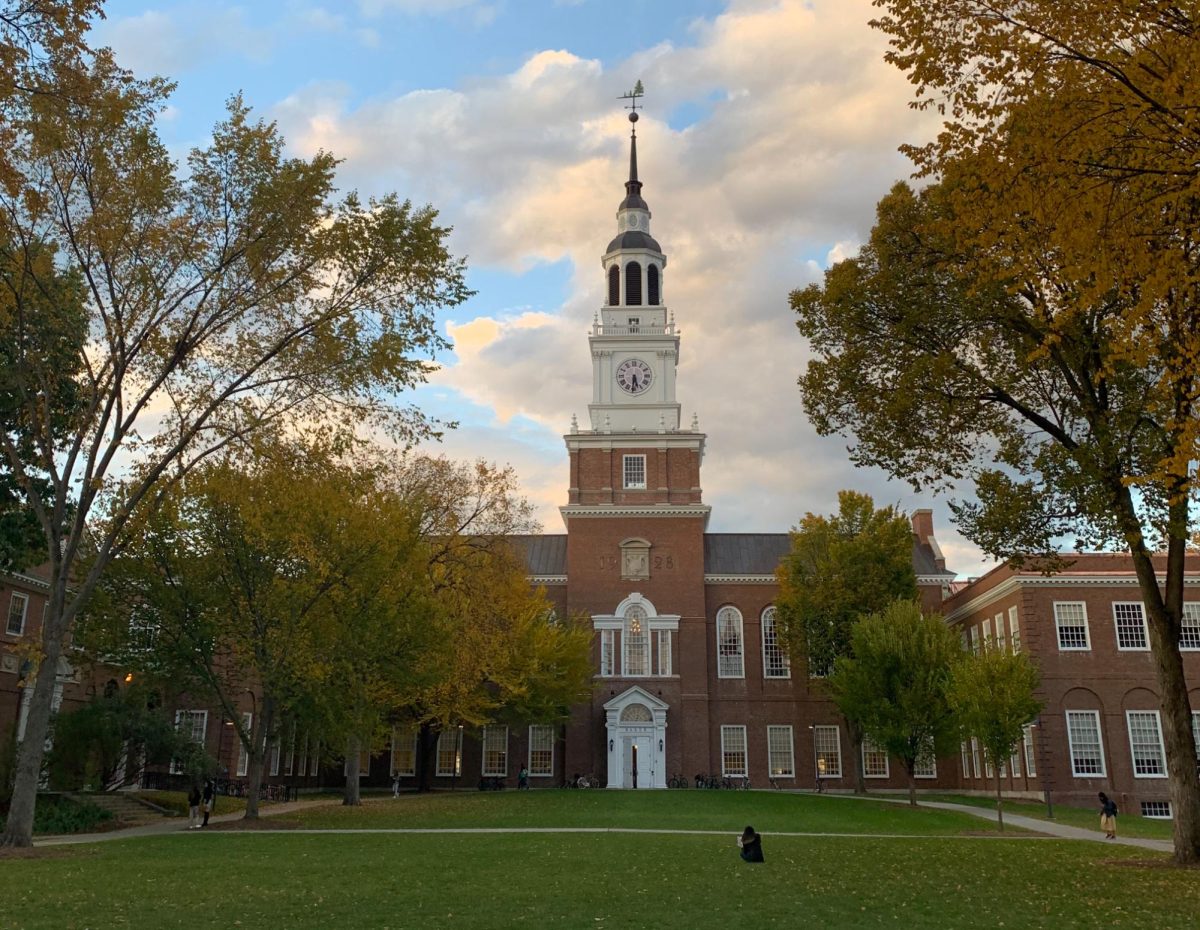On February 5th, 2024, Dartmouth College updated its testing policy for the coming application cycle. President Sian Leah Beilock informed this discretion with research conducted by Dartmouth economists, Elizabeth Cascio, Bruce Sacerdote, Doug Staiger, and educational sociologist Michele Tine. Their findings indicated that a “test-optional” system negates Dartmouth admissions’ commitment to a holistic reviewing approach.
The study found that SAT (and ACT) scores at Dartmouth are linearly related to first-year GPA, indicating a high probability of success for students who test well— a statistic that proved true across all subgroups.

However, some research still suggests that requiring test scores is unfair to students who can not afford retakes, resources, or tutors. This is what drove the University of California campuses to indefinitely commit to a test-blind policy.
In 2021, The New York Times covered the UC settlement case, in which they forfeited a test requirement on account of racism. Amanda Mangaser, a lawyer representing the students, attests, “Today’s settlement ensures that the university will not revert to its planned use of the SAT and ACT — which its regents have admitted are racist metrics.”
With this in mind, Dartmouth College’s Vice President and Dean of Admissions, Lee Coffin, makes their intentions clear with the following statement: “Our bottom line is simple: we believe a standardized testing requirement will improve—not detract from—our ability to bring the most promising and diverse students to our campus.”
Dartmouth mentions that many applicants from less well-known high schools withheld test scores that would have strengthened their application. The “Report From Working Group on the Role of Standardized Test Scores in Undergraduate Admissions” clarifies that test scores are taken in context, “Admissions computes a measure of how each applicant performs on standardized tests relative to the aggregate score of all test-takers in their high school, using data available from the College Board.”
The update to their official website mentions, “We will develop a new testing profile that seeks, in part, to disrupt the long-standing focus on the class mean and mid-50 percent range, with hopes of empowering students to understand how a localized score aligns with the admissions parameters at Dartmouth.”
This reformed system could prove contagious to other highly selective colleges, especially within the Ivy League. Still, opinions are polarized on Dartmouth’s campus.
Dartmouth Alumna Kiera Bernet ‘23 did not have the luxury of opting out of the test score submission. When she was admitted in the 2018-2019 application cycle from Valley Center High School in San Diego, the test-optional agenda was outlandish.
She admires her campus for questioning the status quo, “I honestly really respect our president for doing it. On the surface, it’s a super unpopular decision, but their research found that requiring tests will help disadvantaged students and she stuck with that.”
However, many still find it difficult to adjust to this unprecedented adjustment, especially those who benefited from the relaxed system.
Arabella Cassidy ‘23, a former writer for Dons Press and current student at Dartmouth College, admits that her application was test-optional. When weighing in on the controversy, her stance is clear; “I understand the thought process of wanting to fall back into tradition, but …I don’t think any one test is an accurate depiction of a student’s skills and knowledge.”
Cassidy defends an important counter: How could Dartmouth’s research undermine the findings of campuses like the University of California schools, which found that the testing environment was an uneven playing field?
When analyzing Dartmouth’s objective, it is important to consider the upcoming changes to the SAT. Beginning next year, the SAT will be only digitally available, test students on shorter passages, not include a non-calculator math portion, and be only two hours— an hour shorter than past years.
Priscilla Rodriguez, who oversees the SAT and PSAT divisions at the College Board mentions that these shifts intend to bring “the stress levels down for students.” The goal is to make students taking the digital exam “feel like they were able to show what they’ve learned in reading, writing, and math and not show how quickly they can answer questions.”
With the research from Dartmouth and the adjustments to the testing structure, it is obvious that the application playing field is slowly leveling. How will this research be contagious to other campuses? Making these changes so close to the application year is unfortunate for the collegiate class of 2029. This change is just a taste of the unpredictable nature of college applications and a nudge for students to brace themselves as they begin the process.






















































